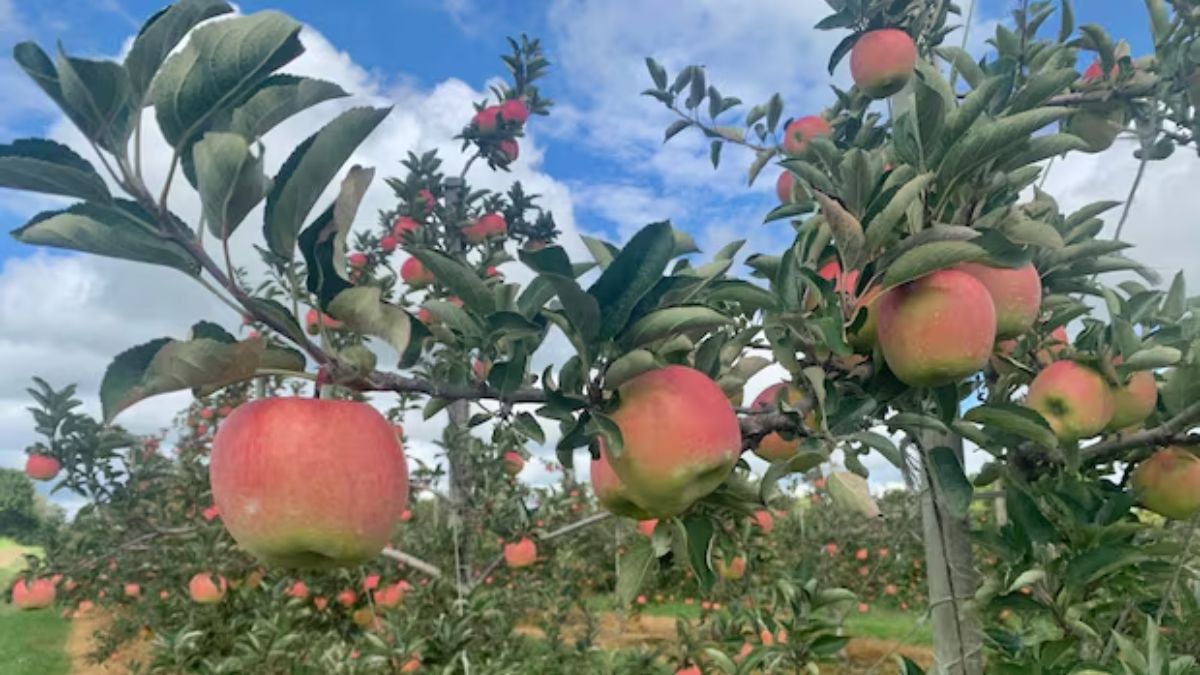Blueberries may look perfectly clean when you grab them from a carton, but don’t be fooled. A quick rinse under tap water isn’t enough to remove bacteria, pesticide residues, or hidden dirt. If you want your berries to stay fresh, safe, and flavorful, you’ll need to go beyond the rinse. Fortunately, pantry staples like vinegar and baking soda can give blueberries a deeper clean while extending their shelf life.
Table of Contents
Why Water Alone Isn’t Enough
Rinsing blueberries with plain water can wash away some visible dust, but it doesn’t do much against bacteria or pesticide residue. That’s where pH-balanced cleaning methods come in. Vinegar, which is acidic, helps dissolve certain chemicals and prevents bacteria from multiplying. Baking soda, on the other hand, is alkaline and targets a different range of microbes. By using one—or both—you get a thorough clean that water alone can’t achieve.
Read More – Samsung Alert – Emergency Update Issued for Most Galaxy Users
Cleaning Blueberries with Vinegar
The most common and effective acidic wash uses white distilled vinegar. It’s inexpensive, easy to find, and consistently strong enough to sanitize.
Steps for a vinegar wash:
- Mix 1 part white vinegar with 3 parts cold water in a bowl
- Add the blueberries and gently stir for 5–10 minutes
- Drain and rinse thoroughly with cold water
- Dry with a clean towel or paper towels
Apple cider vinegar can be used as well, but it tends to leave a stronger smell. For everyday cleaning, white vinegar is the better choice.
Cleaning Blueberries with Baking Soda
If you prefer an alkaline option, baking soda does the job. It helps neutralize certain residues and provides an extra layer of microbial protection.
Steps for a baking soda wash:
- Dissolve 1 teaspoon of baking soda in 2 cups of cold water
- Add blueberries and soak for 5–10 minutes, stirring occasionally
- Rinse thoroughly under running water
- Pat dry before storing
It’s important to rinse well, since leftover baking soda can leave a slightly bitter taste.
The Right Way to Store Blueberries
Even after a thorough wash, how you store blueberries determines how long they stay fresh. The biggest culprit of spoilage is excess moisture, which accelerates mold growth.
Storage tips:
- Dry blueberries completely before storing
- Use a breathable container, not a sealed plastic one
- Line the container with paper towels to absorb extra moisture
- Keep them in the refrigerator’s main compartment, not the crisper drawer
With proper washing and storage, blueberries can last up to a week—double their usual shelf life.
Freezing Blueberries for Long-Term Use
If you buy blueberries in bulk, freezing is the best way to avoid waste. Proper freezing keeps them firm, flavorful, and ready for smoothies, oatmeal, or baking.
Steps for freezing:
- Wash, rinse, and dry thoroughly
- Spread in a single layer on a baking sheet
- Freeze for 2–3 hours until firm
- Transfer to freezer bags or containers and remove excess air
This method prevents clumping and ensures you can grab just the amount you need later.
Do You Need Store-Bought Fruit Washes?
Many brands sell commercial fruit washes, but research shows they don’t outperform simple vinegar or baking soda solutions. Unless you’re using industrial-grade cleaners, household staples are safer, cheaper, and just as effective.
Quick Tips for Blueberry Care
- Wash berries only before eating, not before storage
- For meal prep, dry thoroughly before refrigerating
- Choose firm, dry berries with a natural dusty coating (that’s their protective bloom)
- Use vinegar for everyday cleaning, and baking soda if you suspect higher pesticide residue
A little extra care can make a big difference in flavor, freshness, and safety.
Blueberries may be small, but they pack a nutritional punch—and treating them right ensures you get the most from every bite. With simple pantry staples and smart storage, you can keep your berries fresher, longer, and far more enjoyable.
FAQ
Should I wash blueberries as soon as I bring them home?
No. Only wash blueberries right before eating them. Washing too early adds moisture, which speeds up mold growth.
Can I mix vinegar and baking soda in the same wash?
It’s not recommended. Mixing them neutralizes the cleaning power. Use one method at a time.
Do frozen blueberries need to be washed before freezing?
Yes. Always wash, rinse, and dry thoroughly before freezing to avoid sealing in bacteria or residues.
How long can I store washed blueberries in the fridge?
If properly dried and stored, washed blueberries can last up to a week in the refrigerator.
Can I use lemon juice instead of vinegar?
Yes, lemon juice is mildly acidic and can work as a natural cleaner, though vinegar is more effective.

















